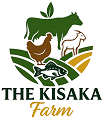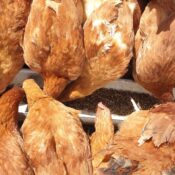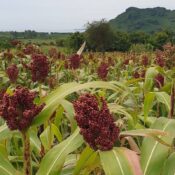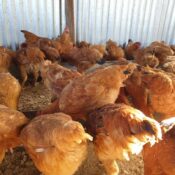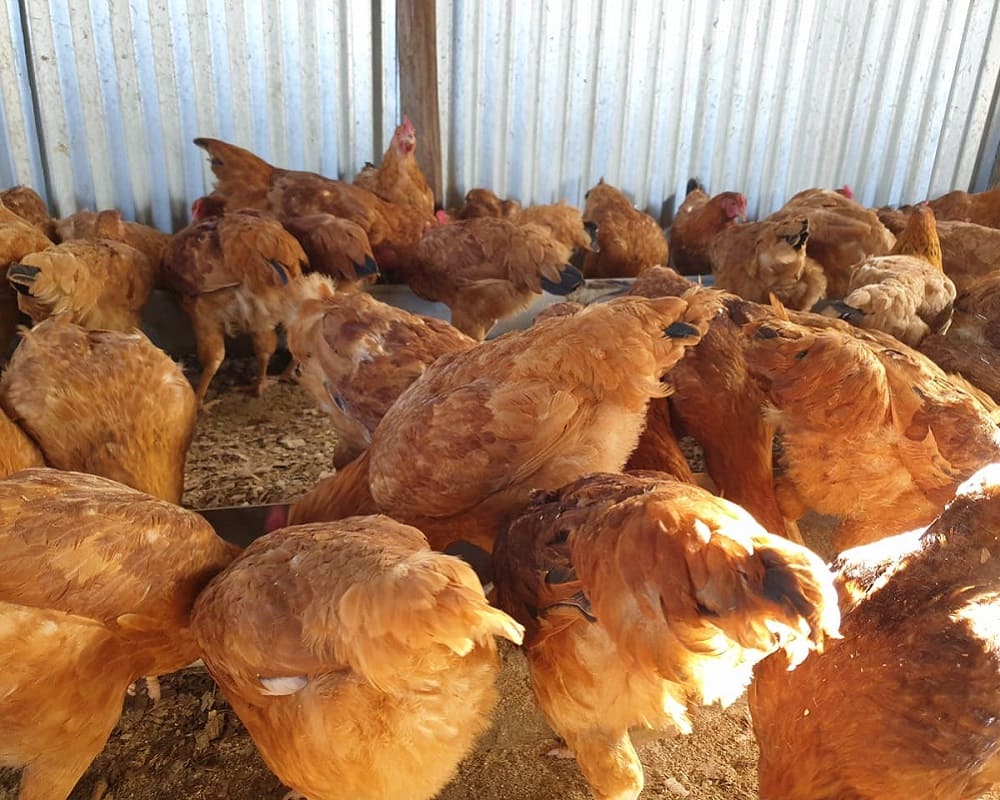
Could Organic farming help solve the climate crisis?
As the world grapples with the escalating impacts of climate change—rising temperatures, erratic weather patterns, soil degradation, and biodiversity loss—experts and communities alike are urgently seeking sustainable solutions. At the heart of this global conversation lies a quietly powerful yet often underappreciated force: organic farming.
At Kisaka Farm, located near the scenic shores of Lake Victoria in Homa Bay County, Kenya, we practice organic agriculture not just as a farming method, but as a commitment to nurturing the earth while feeding its people. Could organic farming be the key to solving the climate crisis? We believe the answer is a strong and hopeful yes. Here's why.
1. Organic Farming Builds Healthy Soils That Store More Carbon
One of the most promising benefits of organic farming lies beneath our feet—in the soil. Conventional agriculture, reliant on synthetic fertilizers and chemical inputs, often strips the soil of its organic matter and microbial life, leading to erosion and carbon release. In contrast, organic practices enrich the soil, increasing its capacity to act as a carbon sink.
By using compost, green manure, crop rotations, and natural mulching, organic farming boosts soil organic carbon and microbial activity. Healthy soils can sequester significant amounts of carbon dioxide from the atmosphere, helping to mitigate global warming.
At Kisaka Farm, we prioritize soil health by rotating crops like sukuma wiki, amaranth, and nightshade, using organic compost and manure to feed the land. Our soils are alive, and that makes a world of difference.
2. Reduced Emissions and No Synthetic Chemicals
Conventional farming contributes to climate change through heavy reliance on synthetic nitrogen fertilizers, which emit nitrous oxide—a greenhouse gas nearly 300 times more potent than carbon dioxide. Organic farming eliminates the use of synthetic inputs, greatly reducing emissions at the source.
Furthermore, organic systems generally use less fossil fuel, as they do not depend on energy-intensive chemical production. At Kisaka Farm, we use manual and low-impact methods for cultivation and pest control, further reducing our carbon footprint.
In a time when every ton of emissions matters, the organic path offers a cleaner, smarter way to grow food.
3. Biodiversity Conservation: Nature’s Climate Ally
Biodiversity plays a critical role in ecosystem resilience. The more diverse an ecosystem, the better it can adapt to and recover from environmental stressors like droughts, floods, and pests—all of which are worsened by climate change.
Organic farms, by avoiding pesticides and promoting crop diversity, support pollinators, beneficial insects, birds, and soil life. These natural allies contribute to pest control, soil regeneration, and stable yields—all while helping ecosystems stay in balance.
At Kisaka Farm, our mix of indigenous leafy greens, tomatoes, onions, and free-range kienyeji chicken and Galla goats create a vibrant, interdependent farming ecosystem. Every plant and animal has a role—and a voice—in sustaining our environment.
4. Water Conservation and Climate Resilience
Water scarcity is becoming a global threat. Organic farms typically retain water better due to improved soil structure and organic matter content. This is crucial in dry regions like parts of Kenya, where rainfall patterns are becoming unpredictable.
At Kisaka Farm, mulching and organic soil-building practices allow us to use water more efficiently, reducing runoff and increasing moisture retention. These methods not only protect crops during droughts but also reduce the risk of flash floods by improving infiltration.
By enhancing resilience to extreme weather events, organic agriculture becomes a buffer against climate uncertainty.
5. Local Food Systems and Reduced Food Miles
A significant portion of agriculture-related emissions comes from long-distance transportation, cold storage, and processing. Organic farming is often practiced on a smaller, local scale, promoting farm-to-table systems that minimize the need for transport and packaging.
At Kisaka Farm, our goal is to supply organic produce directly to local consumers, farm produce retailers, restaurants, and hotels in Homa Bay and surrounding regions. By supporting local food networks, we reduce food miles and build stronger, self-reliant communities.
6. Empowering Farmers as Climate Stewards
Lastly, organic farming empowers farmers to become stewards of the environment, rather than agents of exploitation. Through knowledge, innovation, and traditional wisdom, farmers can heal the land while providing for their families and communities.
We see this every day at Kisaka Farm: the pride of rearing healthy goats without synthetic feed, the joy of harvesting vegetables grown without chemicals, and the fulfillment of knowing we’re leaving the soil better than we found it.
So, Can Organic Farming Solve the Climate Crisis?
While organic farming alone cannot reverse climate change, it is a crucial piece of the solution. It offers practical, proven methods to reduce emissions, capture carbon, protect biodiversity, and build climate resilience—all while nourishing people with safe, nutritious food.
At Kisaka Farm, we are proud to be part of this movement. By choosing organic, you are not just making a personal health choice—you are investing in the future of our planet.
Let’s regenerate the earth, one farm at a time.
Recent Posts
From Soil to Soul: Discover the Organic Goodness of The Kisaka Farm
Could Organic farming help solve the climate crisis?
+254 700 433 877
info@kisakafarm.com
